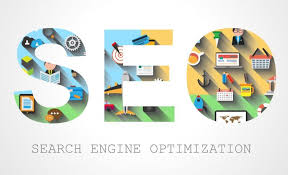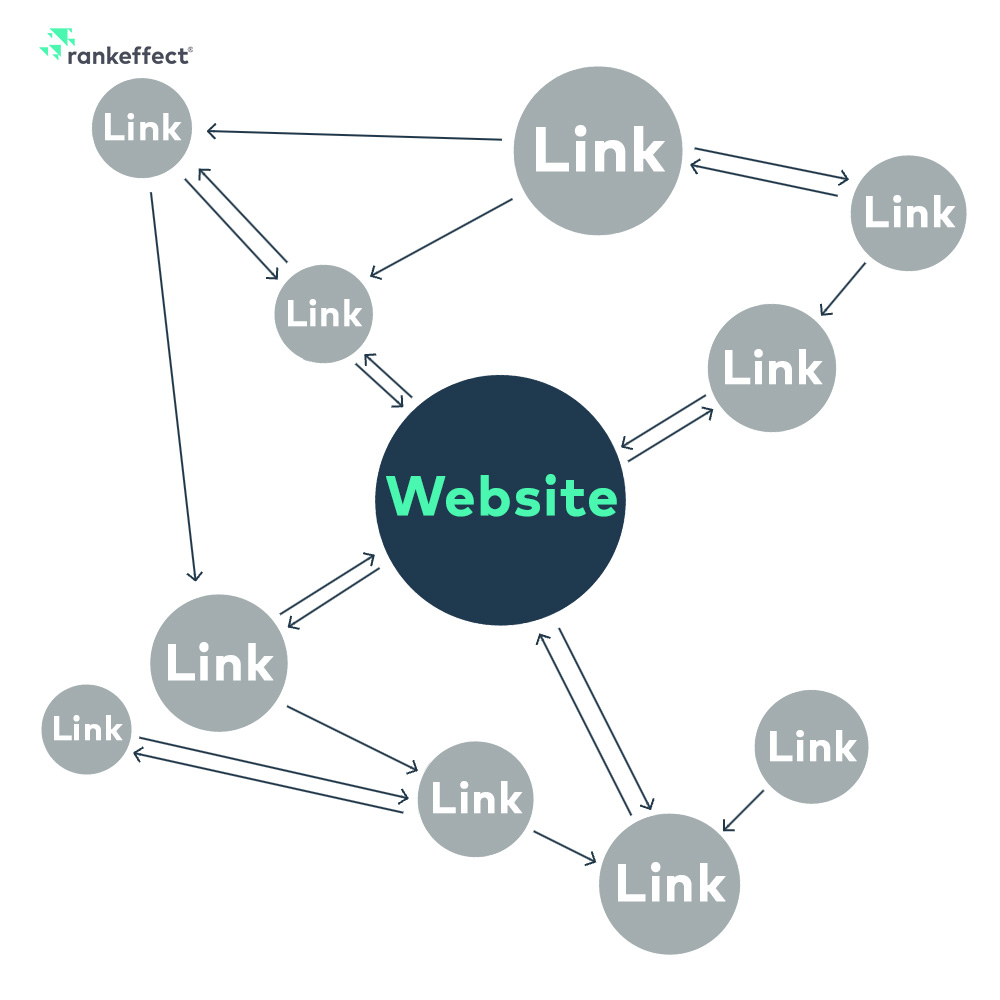Keresőmarketing: Hogyan Találjanak Meg Téged az Interneten?
Szia! Valaha gondolkodtál már azon, hogyan találják meg az emberek azokat a dolgokat, amiket keresnek az interneten? Nos, ennek nagy része keresőmarketingnek köszönhető. Ebben a cikkben egyszerűen elmagyarázzuk, mi is az a keresőmarketing, és hogyan segíthet abban, hogy többen találják meg a weboldaladat.

Mi az a Keresőmarketing?
A keresőmarketing két fő részből áll: keresőoptimalizálás (SEO) és fizetett keresés (PPC).
-
Keresőoptimalizálás (SEO): Ez az, amikor különböző módszerekkel próbáljuk elérni, hogy a weboldalad előkelőbb helyen szerepeljen a Google vagy más keresőmotorok találati listáján. Az emberek általában csak az első néhány találatot nézik meg, ezért fontos, hogy minél előrébb kerülj.
-
Fizetett keresés (PPC): Ebben az esetben fizetsz a keresőmotoroknak, hogy a hirdetésed megjelenjen a találatok között. Amikor valaki rákattint a hirdetésedre, fizetsz egy kis összeget (ezt nevezik kattintásonkénti költségnek vagy CPC-nek).
SEO: Hogyan Legyél a Keresési Találatok Királya?
A SEO-nak több része van:
-
On-page SEO: Itt arról van szó, hogy a weboldalad tartalmát optimalizálod. Ez magába foglalja a kulcsszavak használatát, a címeket, a meta leírásokat és a képeket is.
-
Off-page SEO: Ez a weboldaladon kívüli dolgokat jelenti, mint például a linképítés. Ez azt jelenti, hogy más weboldalak linkelnek a te oldaladra, ami növeli az oldalad hitelességét.
-
Technikai SEO: Ez a weboldal technikai részét érinti, például a webhely sebességét és a mobil optimalizálást. Minél gyorsabb és könnyebben használható a weboldalad, annál jobb helyezést érhetsz el.
PPC: Hogyan Hirdess Hatékonyan?
A PPC hirdetések egyik legismertebb platformja a Google Ads. Itt megadhatod, hogy mennyit szeretnél költeni a hirdetéseidre (hirdetési költségkeret), és kiválaszthatod a kulcsszavakat, amikre szeretnéd, hogy megjelenjen a hirdetésed.
-
CTR (átkattintási arány): Ez megmutatja, hogy hányan kattintanak a hirdetésedre a megtekintésekhez képest. Minél magasabb ez az arány, annál jobb.
-
Konverziók: Ez azt jelenti, hogy hányan hajtják végre azt a műveletet, amit szeretnél (például vásárlás, feliratkozás).
-
Remarketing: Ez egy olyan stratégia, amikor újra célzod azokat az embereket, akik már meglátogatták az oldaladat korábban.
Keresőmarketing – Hogyan Találhatnak Meg Téged Az Interneten?
Helló, kedves olvasók! Ma arról fogunk beszélni, hogy hogyan tudsz kitűnni az interneten, és hogyan találhatnak rád az emberek könnyedén. Ha 13 éves vagy, és érdekel, hogyan működik a keresőmarketing, akkor ez a cikk neked szól! Kezdjük az alapokkal.
Alapfogalmak
Keresőoptimalizálás (SEO): Ez egy olyan technika, amely segít abban, hogy a weboldalad a keresők (például Google) találati listájának elejére kerüljön. Képzeld el, hogy ha beírsz valamit a keresőbe, az első pár oldal között szeretnél lenni – ezt a SEO-val érheted el.
Keresőoptimalizálás seo
 Keresőoptimalizálás ügynökség
Keresőoptimalizálás ügynökség
Fizetett keresés (PPC): Ez egy olyan hirdetési forma, ahol fizetsz azért, hogy a hirdetésed megjelenjen a keresők találati oldalán. Ha valaki rákattint a hirdetésedre, akkor neked pénzbe kerül, de cserébe látogatót kapsz.
Kulcsszavak: Ezek azok a szavak vagy kifejezések, amiket az emberek beírnak a keresőbe. Ha jó kulcsszavakat használsz a weboldaladon, könnyebben megtalálnak.
Hirdetések: Ezek olyan fizetett üzenetek, amelyek megjelennek a keresőkben vagy más weboldalakon, hogy több látogatót hozzanak a te oldaladra.
Organikus keresés: Ezek a találatok azok, amelyek nem fizetett hirdetések. Ha valaki rákattint a weboldaladra, mert az jól van optimalizálva, az organikus találat.
SEO
On-page SEO: Ez azt jelenti, hogy a saját weboldaladon végzel változtatásokat, hogy az jobban szerepeljen a keresőkben. Például jó címeket, leírásokat és kulcsszavakat használsz.
Off-page SEO: Ez magában foglalja azokat a dolgokat, amiket más weboldalak csinálnak, hogy a te oldalad jobb helyezést érjen el. Például, ha más oldalak linkelnek a te oldaladra.
Technikai SEO: Ez az oldalad technikai részeire vonatkozik, mint például a webhely sebessége vagy a mobilbarát megjelenés.
Linképítés: Ez az, amikor más weboldalak linket helyeznek el a te oldaladra. Minél több jó minőségű link mutat az oldaladra, annál jobb.
Tartalommarketing: Ez arról szól, hogy érdekes és értékes tartalmat hozol létre, amit az emberek szívesen olvasnak és megosztanak.
Webhely sebesség: Ha gyorsan betölt a weboldalad, az jobb élményt nyújt a látogatóknak és a keresők is jobban szeretik.
Prémium linképítés
A prémium linképítést profi keresőoptimalizálás (SEO) szakemberre bízni számos okból kritikus jelentőségű lehet egy weboldal hosszú távú sikeréhez. Íme néhány fő indok:

-
Tapasztalat és Szakértelem:
- Mélységi Ismeretek: A SEO szakemberek mélyreható ismeretekkel rendelkeznek a keresőmotorok algoritmusairól, így hatékonyabb stratégiákat tudnak kidolgozni.
- Aktuális Trendek: Naprakészek az iparági trendekkel és a keresőmotorok folyamatosan változó algoritmusával kapcsolatban, így gyorsabban tudnak alkalmazkodni az új követelményekhez.
-
Minőségi Hivatkozások:
- Relevancia és Tekintély: A profi SEO szakemberek olyan linkeket szereznek, amelyek relevánsak és tekintélyesek a célpiac szempontjából, növelve ezzel a weboldal hitelességét és rangsorolását.
- Fehér Kalapos Módszerek: Betartják a keresőmotorok irányelveit, elkerülve a büntetéseket és biztosítva a hosszú távú eredményeket.
-
Stratégiai Tervezés:
- Versenytárs Elemzés: Elemzik a versenytársakat és azok linképítési stratégiáit, így hatékonyabb és célzottabb linképítési tervet tudnak készíteni.
- Célzott Linképítés: Stratégiai megközelítést alkalmaznak, amely összhangban van a vállalkozás céljaival és növeli a forgalmat és a konverziókat.
-
Idő és Erőforrás Megtakarítás:
- Kimutatható Eredmények: A SEO szakemberek hatékonyabb módszereket alkalmaznak, ami gyorsabb és mérhető eredményekhez vezet.
- Költséghatékonyság: A szakszerűen kivitelezett linképítés hosszú távon költséghatékonyabb, mivel elkerüli a hibás módszerekből adódó büntetéseket és visszaeséseket.
-
Kockázatkezelés:
- Spam és Büntetések Elkerülése: A SEO szakemberek ismerik a keresőmotorok által alkalmazott szűrőket és algoritmusokat, így minimalizálják a kockázatot, hogy a weboldal spamként legyen azonosítva.
- Eredményesség Megőrzése: Folyamatos figyelemmel kísérik a linkek hatékonyságát és szükség esetén módosításokat végeznek a stratégián.
-
Hosszú Távú Eredmények:
- Fenntartható Növekedés: A megfelelő linképítési stratégiák fenntartható és stabil növekedést biztosítanak, ami hosszú távon növeli a weboldal látogatottságát és bevételeit.
- Márkaépítés: A minőségi linképítés hozzájárul a márka ismertségéhez és hitelességéhez, ami hosszú távú üzleti sikereket eredményez.
Összefoglalva, a prémium linképítés egy összetett és szakértelmet igénylő folyamat, amelyet érdemes profi SEO szakemberre bízni a legjobb eredmények elérése érdekében.
Miért hasznos a személyiségfejlesztés?
A személyiségfejlesztés egy dinamikus és átfogó folyamat, amely az egyén személyiségjegyeinek, viselkedési mintáinak, és készségeinek tudatos javítását és fejlesztését célozza. Ennek az összetett folyamatnak a középpontjában az önismeret növelése, az önreflexió, valamint a kommunikációs és interperszonális készségek fejlesztése áll. A személyiségfejlesztés segít az egyénnek abban, hogy kiegyensúlyozottabbá, magabiztosabbá és alkalmazkodóképesebbé váljon, miközben javítja kapcsolatait és hatékonyabban kezeli a mindennapok kihívásait.
A személyiségfejlesztés jelentősége
A személyiségfejlesztés jelentősége vitathatatlan mind az egyén, mind a környezete számára. Az önismeret mélyítése és a személyes készségek fejlesztése hozzájárul az egyén önbizalmának növekedéséhez, a stresszkezelő képesség javulásához, és egy általánosan pozitívabb életfelfogáshoz. Ezek a változások nemcsak az egyén belső világát gazdagítják, hanem környezetére is pozitív hatást gyakorolnak, elősegítve a harmonikusabb emberi kapcsolatokat és egy támogató közösségi légkört.
Az egyén számára nyújtott előnyök
1. Növekedett önismeret: A saját magunkkal kapcsolatos tudás bővítése lehetővé teszi, hogy jobban megértsük viselkedésünk motivációit, erősségeinket és fejlesztendő területeinket.
2. Javított kommunikációs készségek: A hatékony kommunikáció alapvető a sikeres emberi kapcsolatokhoz. A személyiségfejlesztés során elsajátított kommunikációs stratégiák javítják az egyén képességét az érzések és gondolatok hatékony közvetítésére.
3. Erősített önbizalom: A folyamatos fejlődés és a személyes sikerek elérése jelentősen növeli az önbizalmat, ami pozitívan befolyásolja az élet minden területét.
4. Hatékonyabb stresszkezelés: A személyiségfejlesztés eszköztárában szereplő relaxációs és stresszkezelő technikák elsajátítása segít az egyéneknek jobban kezelni a mindennapi élet nyomását.
A környezet számára nyújtott előnyök
1. Pozitív társas kölcsönhatások: Egy fejlett személyiségű egyén képes harmonikusabb és értékesebb kapcsolatok kialakítására, ami kedvezően hat a közvetlen környezetére.
2. Konfliktusok csökkenése: Az empátia és a konfliktuskezelési készségek javítása révén az egyén kevesebb társas konfliktust generál, ami nyugodtabb és támogatóbb közösségi környezetet eredményez.
3. Inspiráció és motiváció: Azok az egyének, akik aktívan dolgoznak a személyiségük fejlesztésén, inspiráló példát mutathatnak mások számára, ösztönözve őket saját fejlődési útjuk elindítására.
Hogyan kezdjünk hozzá a személyiségfejlesztéshez?
1. Önreflexió: Kezdjük az önreflexióval és az önismerettel, hogy felismerjük saját erősségeinket és a fejlesztésre szoruló területeket.
2. Célkitűzés: Határozzunk meg konkrét, elérhető célokat a személyiségünk fejlesztésére.
3. Tanulás és alkalmazás: Vegyünk részt képzéseken, olvassunk szakirodalmat, és alkalmazzuk a tanultakat a gyakorlatban.
4. Visszajelzés és alkalmazkodás: Kérjünk visszajelzést környezetünktől, és legyünk nyitottak a változásra.
A személyiségfejlesztés tehát egy életre szóló folyamat, amely nemcsak az egyén, hanem a környezete számára is számos előnnyel jár. A tudatos fejlesztés révén javíthatjuk önismeretünket, kommunikációs készségeinket és stresszkezelő képességünket, ami pozitívan hat életünk minden területére, és lehetővé teszi, hogy kiegyensúlyozottabb, boldogabb életet éljünk.
Keresőmarketing Crs ingatlanok, Kozmetika, Autofoliazas, Plasztikaisebeszet, Bioautowasche, down pillow
Crs ingatlanok Kozmetika Autofoliazasbudapest Nemetnyelvtanulas Etrendestaplalekkiegeszitok Szépségszalon Budapest Plasztikaisebeszet Bioautowasche MotorolajwebshopCrs ingatlanok, Kozmetika, Autofoliazas, Plasztikaisebeszet, Bioautowasche
Keresőmarketing
Digital Marketing Agency
dow pillow: down pillow
Vezető hírek:
Kollagének
Kollagének
Kollagének
Vitaminok
Vitaminok
Vitaminok
Női vitaminok
Női vitaminok
Női vitaminok
Európai Parlament
Európai Parlament
Európai Parlament
Költségvetés
Költségvetés
Költségvetés
Választások
Választások
Választások
RMDSZ
RMDSZ
RMDSZ
Orbán Viktor
Orbán Viktor
Orbán Viktor
Románia Hírek
Románia Hírek
Románia Hírek
Personal Development
Developing and honing your skills, learning new things and setting goals for yourself, all take a bit of knowledge into the actual process of personal development. You could become overwhelmed if you aren't ready for the journey ahead, so you want to be sure that you have all the information you need to start. With this article's various tips, you could get a much better feel for the process and what personal development really means.
használtautó, inox korlát ár
new balance hungarian goose down new balance and hungarian goose down használtautó, goose down használtautó használtautó és inox korlát ár





 Keresőoptimalizálás ügynökség
Keresőoptimalizálás ügynökség
